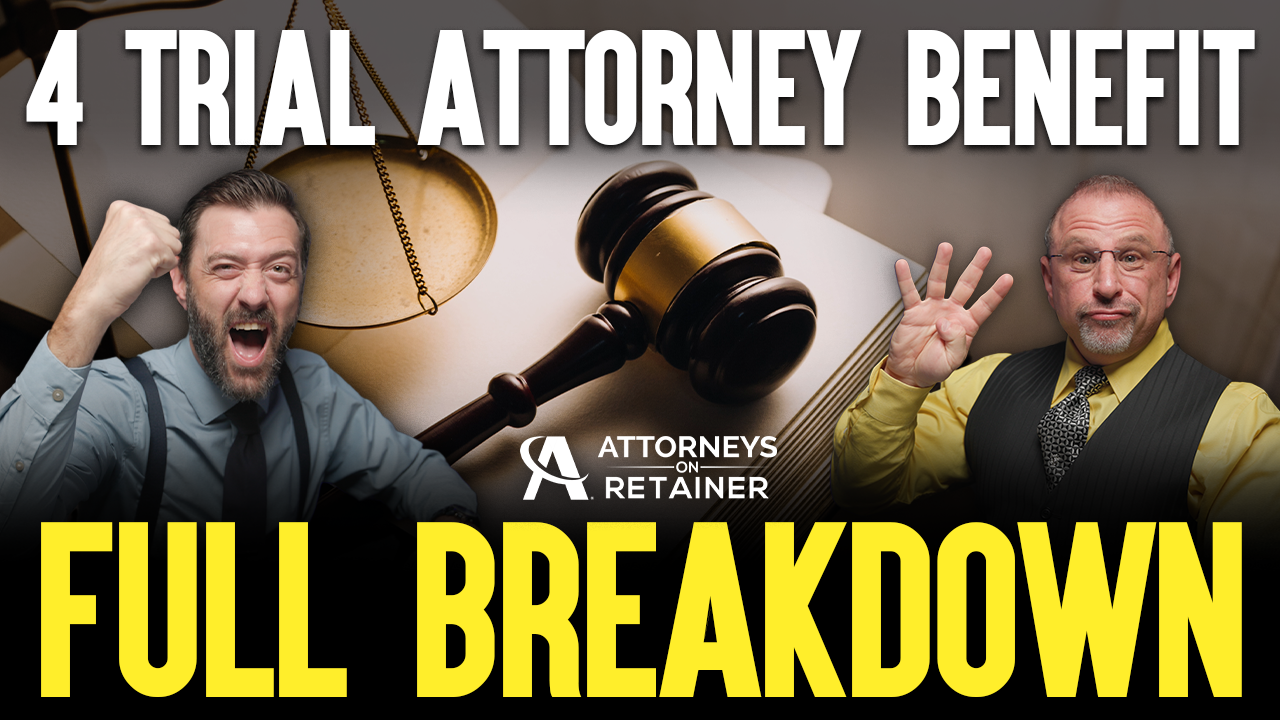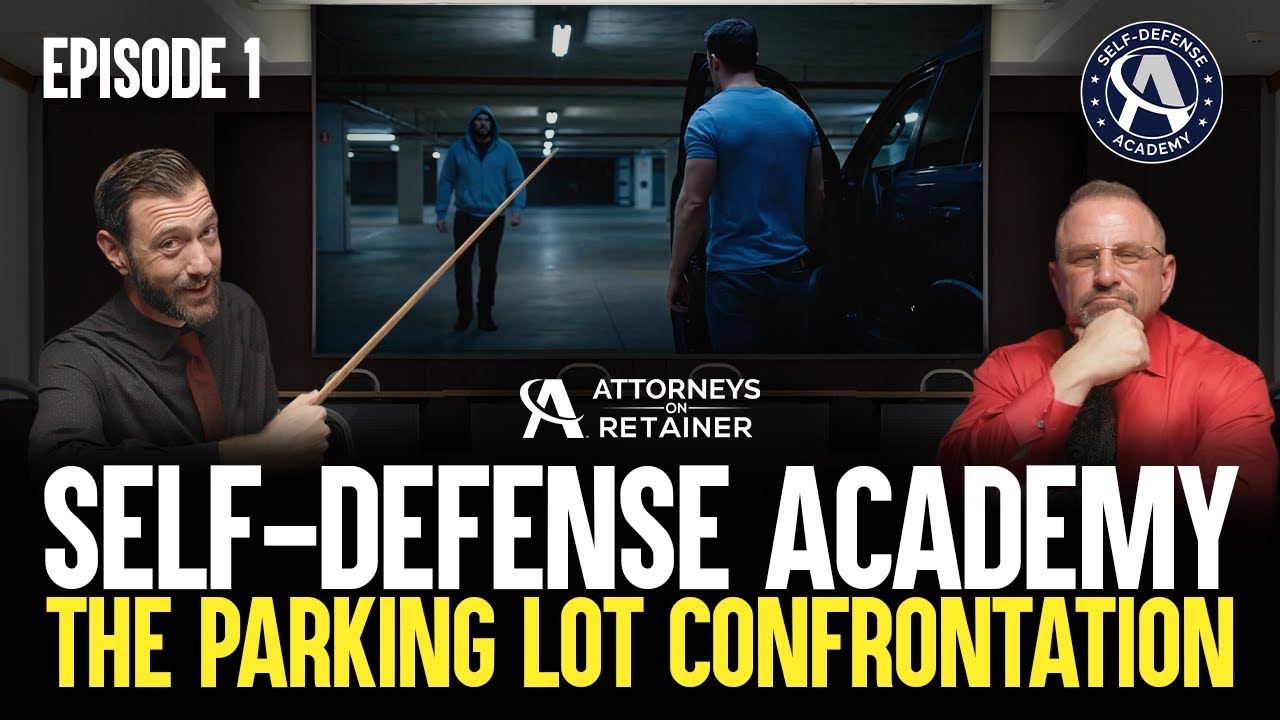Fighting The State Ep. 6: Interviews
July 16, 2024
In any criminal case, pre-trial interviews are important to how the case turns out. Whether it is a minor case or a serious trial, both the defense and the prosecution use these interviews to strengthen their arguments. At the Attorneys For Freedom Law Firm, we know that pre-trial interviews are a key part of defending any criminal case. These interviews help shape the strategy and direction of a case, influencing everything from evidence to witness statements. Understanding how to approach them—when to do them, what to ask, and how to handle challenges—is crucial for success in court. Let’s discuss why pre-trial interviews matter and how they can make or break a defense.
Key Points:
- Setting the Stage: Why Pre-Trial Interviews Matter
- The Strategy Behind Interview Timing
- The Challenges of Witness Interviews
- Uncovering the Unexpected: The Value of Every Interview
- The Two Types of Interviews: Informal and Formal
- Balancing Strategy with Legal Ethics
- The Final Word: Being Relentless Advocates
- Final Thought: Defending Justice One Interview at a Time
Setting the Stage: Why Pre-Trial Interviews Matter
Pre-trial interviews usually start after a person has been released before trial but before the actual trial begins. This is a critical step in a legal defense because it is when lawyers gather evidence and hear from witnesses. What witnesses say during these interviews can have a significant impact on the trial’s outcome. One reason we conduct these interviews early is that people tend to stick to their initial version of events, even if it is not entirely accurate. As time passes, their memories can fade. By getting a witness’s statement early, we can prevent their story from being influenced by other people who may try to shape the narrative.
-
We conduct pre-trial interviews to gather crucial evidence and witness statements before our clients’ memories fade or are influenced by the prosecution.
-
Witness statements made early often impact the outcome of the trial, as people tend to stick to their initial version of events.
“The further away we get from the actual incident, the more likely people’s memories are to fade.”
The Strategy Behind Interview Timing
Timing is crucial when it comes to interviews. It is better to talk to witnesses before the prosecution can affect or change what they say. In some cases, we have even been able to interview witnesses before a person is officially charged with a crime. Doing this early helps keep the witness’s memory fresh and reduces the chance that their story will be influenced by others.
There is also a big difference between how state and federal systems handle interviews. In many states, defense lawyers have the right to interview witnesses, but in federal cases, this is not always the case. In federal court, where pre-trial interviews are not guaranteed, defense attorneys often have to work harder to convince witnesses to speak. Prosecutors sometimes advise witnesses not to talk to us, making things more difficult.
“I would rather interview somebody before the prosecutor gets a chance to talk to them.”
The Challenges of Witness Interviews
“There is a public misconception that when officers come around and say, ‘I want to talk to you,’ you automatically have to answer the questions. That is not the case.”
Many people mistakenly believe they must speak with the police if asked. However, this is only true if a court orders them to do so. Witnesses should understand that they have the right to remain silent or decline an interview, especially if they feel pressured. It is also important to ensure that witness interviews are handled appropriately. While we might advise that speaking with law enforcement is not always in the witness’s best interest, we must be cautious not to discourage them from cooperating. Striking the right balance is key to staying within legal and ethical boundaries.
-
Witnesses are not required to give police interviews unless a court mandates it, despite common misconceptions.
-
While it is important to guide witnesses, there are legal and ethical boundaries that prevent us from advising them not to speak to law enforcement.
“Everybody has the right to just shut up, whether you are in jeopardy or not.”
Uncovering the Unexpected: The Value of Every Interview
Even interviews that seem ineffective can give critical information. In one DUI case, a small mistake in how a blood sample was handled helped us get a lighter sentence for our client. By talking to a seemingly unimportant witness, we discovered a problem with how the evidence was managed, which changed the entire case.
“We have had so many instances in our cases where it is a witness we did not expect to be important at all who gave us the thing we needed to resolve the case.”
Sometimes, interviews reveal that police reports are not always accurate or omit important details. By talking to witnesses ourselves, we have often found mistakes in what the police wrote down. These interviews can even reveal differences in what experts say, which can be crucial in challenging the prosecution’s case. When expert testimonies conflict or details are inconsistent, it opens the door for us to raise a reasonable doubt. This can significantly influence the outcome of a trial, sometimes leading to reduced charges, a lighter sentence, or even a dismissal of the case altogether.
-
Witness interviews can uncover mistakes in how evidence is handled, which can significantly influence the outcome of a case.
-
Independent interviews often reveal errors or missing details in police reports, providing new insights that challenge official accounts.
The Two Types of Interviews: Informal and Formal
When conducting pre-trial interviews, there are two primary categories we work with: informal and formal interviews.
Informal Interviews
Informal Interviews are typically conducted without notifying the prosecution. These are often carried out by sending an investigator to interview witnesses or gathering statements outside the formal legal process. Informal interviews might even occur before a case is officially charged. We frequently utilize these types of interviews to gather initial impressions and insights before the state has a chance to intervene or influence the witnesses.
In an informal setting, we may choose not to record the conversation, depending on the strategy, as it is important to weigh the pros and cons of having that interview as part of discoverable evidence. Sometimes, these interviews uncover unexpected details that change the course of our case.
Formal Interviews
Formal Interviews, on the other hand, are structured and court-ordered. These interviews typically take the form of depositions, where both the defense and prosecution are present. The witness is under oath, and everything is recorded and transcribed for use in court later. Formal interviews are a necessary step when the prosecution has made certain witnesses available or when we need to confirm crucial testimony that will be used at trial.
We have found that formal interviews provide an opportunity to clarify essential details or secure witness statements, preventing them from changing their story later on the stand. However, because the prosecution is involved, we sometimes withhold specific lines of questioning strategically, saving key points for the trial itself.
Balancing Strategy with Legal Ethics
It is essential to have a clear goal before starting any interview. We often use interviews to gather information for legal motions, such as those that attempt to suppress evidence obtained in unconstitutional searches or improper interrogations under the Fourth or Fifth Amendments. But we have also learned that it is important to be flexible, as new, unexpected details can arise during interviews.
We also carefully consider whether or not to record interviews. Recording a witness’s statement can be helpful, primarily if it supports our defense. However, it also creates evidence that we might have to share with the prosecution. In some situations, it may be smarter to keep the interview casual and not record it.
The Final Word: Being Relentless Advocates
“We tell everybody, we defend them like we would want to defend ourselves.”
We believe it is crucial to make things challenging for the prosecution. By being thorough, persistent, and strategic in our pre-trial interviews, we leave no stone unturned to protect our clients. Whether it is catching mistakes in witness statements, using legal rules to our advantage, or securing critical testimony, we are committed to defending our clients with the most vigorous defense possible.
It is also important to remember why we do this work. In a free society, criminal defense attorneys play a vital role. Our job is not just about defending one person—it is about upholding justice and ensuring that everyone’s rights and freedoms are protected.
-
The Attorneys For Freedom Law Firm focuses on creating strong defenses by carefully examining witness statements, legal rules, and gathering key evidence.
-
Our criminal defense attorneys play a crucial role in maintaining justice and protecting individual rights in a free society.
“We are truly honored to be criminal defense lawyers, as a free society cannot exist without our type of legal services.”
Final Thought: Defending Justice One Interview at a Time
In a justice system where every word counts, our pre-trial interviews serve as a powerful tool to strategize, secure critical details, and hold the prosecution accountable. Whether it is the difference between conviction and dismissal, we are not just defending clients—we are defending justice itself.
The Attorneys On Retainer Program brings the same commitment to defending your rights as we do in every criminal case. Just like in pre-trial interviews, where the outcome of a case can be shaped by timing and strategy, having the proper legal support early on is crucial. If you are involved in a self-defense case, our experienced lawyers are ready to fight for you, ensuring that no detail is overlooked. Call 866-404-5112 today to join our program and make sure you have the legal support you need when it matters most.



